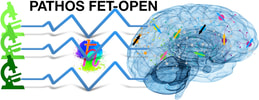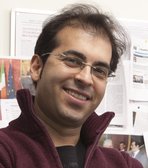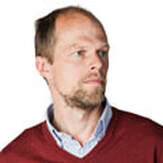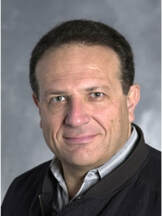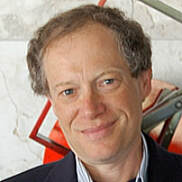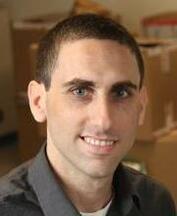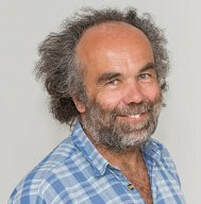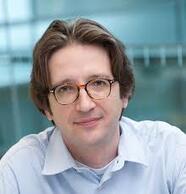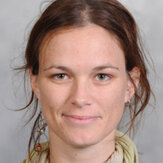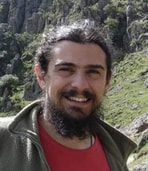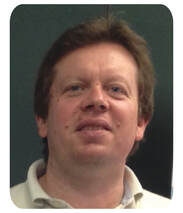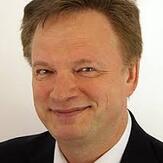PATHOS Consortium.PATHOS will integrate the skills and facilities of 5 worldwide leading groups with complementary expertise in a multi-disciplinary consortium. PATHOS builds on recent ground-breaking results from its members resulted in publication of several publications including Nature group and patents, demonstrating skills ranging from theoretical physics to photonics, condensed matter and biophysics.
|
H2020 EU FET-OPENEU FET Open supports the early-stages of the science and technology research and innovation around new ideas towards radically new future technologies. The visionary aspects and exploratory characteristics of FET might make it sound like a kind of magic, but the mission of FET is actually very concrete: to turn Europe's excellent science base into a competitive advantage. FET actions are expected to initiate radically new lines of technology through unexplored collaborations between advanced multidisciplinary science and cutting-edge engineering. It will help Europe grasp leadership early on in those promising future technology areas able to renew the basis for future European competitiveness and growth, and that can make a difference for society in the decades to come.
|
Consortium skillsWe briefly highlight the contribution of each team:
(i) UNIFI: optimal control, Zeno phenomena, stochastic measurements, noisy dynamics, numerical computations, micro- & nano-photonics and robotics; (ii) WEIZMANN: analysis of noise spectral densities, stochastic cooling and thermometry, Zeno effects, NMR phenomena; (iii) INRIM: fluorescence measurements, quantum optics, diamond physics and neurophysiology (from University of Turin associated component); (iv) HUJI: NV-centers in diamond, Gaussian and non-Gaussian quantum sensing; (v) TUDO: NMR/MRI platforms, noise spectroscopy. |
PATHOS Team
Filippo Caruso
|
Gershon Kurizki
|
Marco Genovese
INRiM PI |
Nir Bar-Gill
HUJI PI John Howell
HUJI Co-PI |
Dieter Suter
TUDO PI |
PATHOS Advisory Board
|
Fedor Jelezko
NVision - Germany |
Gonzalo Alvarez
CNEA - Argentina |
Elisabeth Giacobino
CNRS - France |
Andrea Giudice
MDP - Italy |
Potential Stakeholders
Quantum technologies are a rapidly growing field that no longer sit within the confines of academic research. Spin-off companies have become well established and larger companies are now developing quantum devices. Europe leads in this field, spurred on by coordinated efforts such as the European Quantum Flagship.
The facilitate the transition of the results of this project towards the market a specific communication strategy addressed to potentially interested manufacturers will be setup. This project aims to push the TRL level of these devices through activities of dissemination.
Together with the communication strategy, also standardisation is one of the key elements for the commercial success of any new technology, especially at the beginning of its development. The creation of globally accepted standards and an anticipatory approach will facilitate the worldwide growth and take up of the quantum technologies (QT) market. The project consortium intend to support the existing standardisation efforts.
Specifically, to establish and promote regular, constructive dialogue between stakeholders (quantum industries) and the project partners, the project will drive the creation of contact groups and contact person between the project and relevant organisations, such as, e.g., quantum industries, quantum networks (QUIC, QBN, EMN-Q …) to ensure all dialogues are appropriately focussed.
Furthermore, the project will develop a knowledge-sharing programme that will provide multiple communication channels to disseminate the results and uptake of the project:
- A web-based platform to facilitate interactions with the project stakeholders will be developed, which will include easy access to a wide range of data, and achievement as well as a service desk for stakeholders to submit enquiries and interest in collaboration
- Organisation of workshops/events and research training organised by the project
The project will support the partner in establishing regular and constructive dialogue between relevant standardisation organisations (such as e.g. the Focus Group on Quantum Technologies of CEN-CENELEC) so that the needs of standardisation of the novel devices developed in the project can be accommodated in the standardisation bodies strategies. Any resulting standards, white papers or similar public document emerging from this effort will be promoted to the community via the project web-portal.
The facilitate the transition of the results of this project towards the market a specific communication strategy addressed to potentially interested manufacturers will be setup. This project aims to push the TRL level of these devices through activities of dissemination.
Together with the communication strategy, also standardisation is one of the key elements for the commercial success of any new technology, especially at the beginning of its development. The creation of globally accepted standards and an anticipatory approach will facilitate the worldwide growth and take up of the quantum technologies (QT) market. The project consortium intend to support the existing standardisation efforts.
Specifically, to establish and promote regular, constructive dialogue between stakeholders (quantum industries) and the project partners, the project will drive the creation of contact groups and contact person between the project and relevant organisations, such as, e.g., quantum industries, quantum networks (QUIC, QBN, EMN-Q …) to ensure all dialogues are appropriately focussed.
Furthermore, the project will develop a knowledge-sharing programme that will provide multiple communication channels to disseminate the results and uptake of the project:
- A web-based platform to facilitate interactions with the project stakeholders will be developed, which will include easy access to a wide range of data, and achievement as well as a service desk for stakeholders to submit enquiries and interest in collaboration
- Organisation of workshops/events and research training organised by the project
The project will support the partner in establishing regular and constructive dialogue between relevant standardisation organisations (such as e.g. the Focus Group on Quantum Technologies of CEN-CENELEC) so that the needs of standardisation of the novel devices developed in the project can be accommodated in the standardisation bodies strategies. Any resulting standards, white papers or similar public document emerging from this effort will be promoted to the community via the project web-portal.
